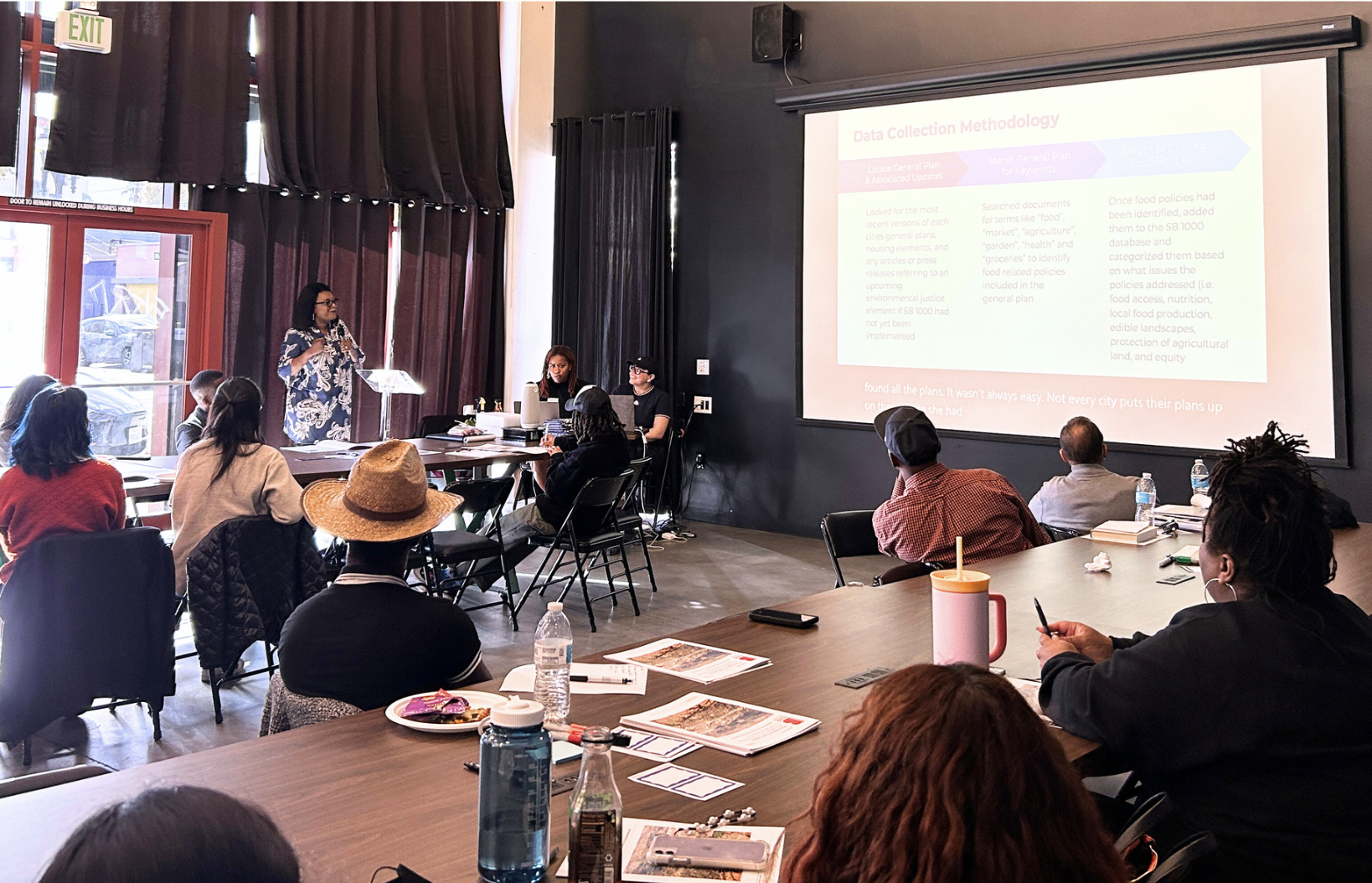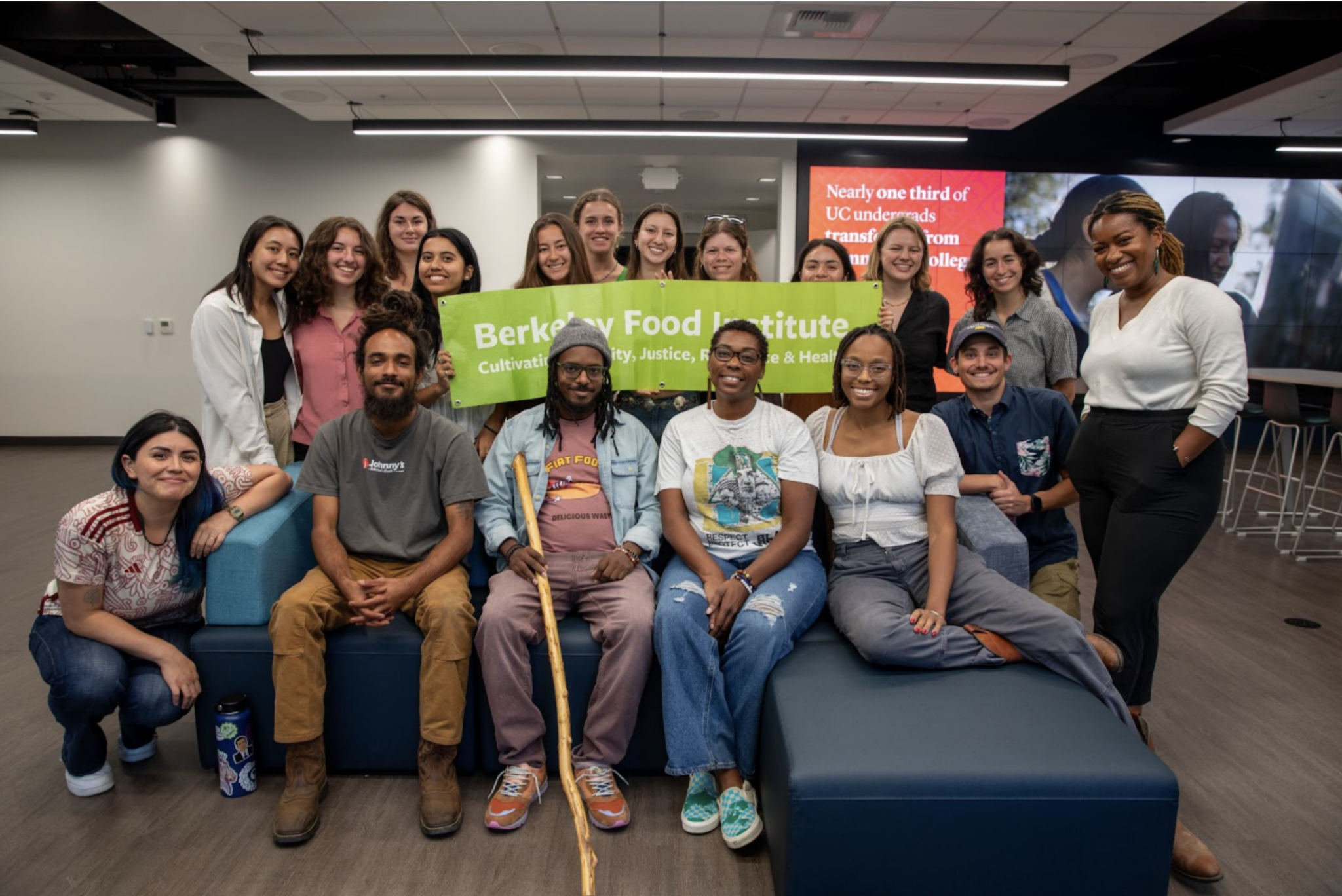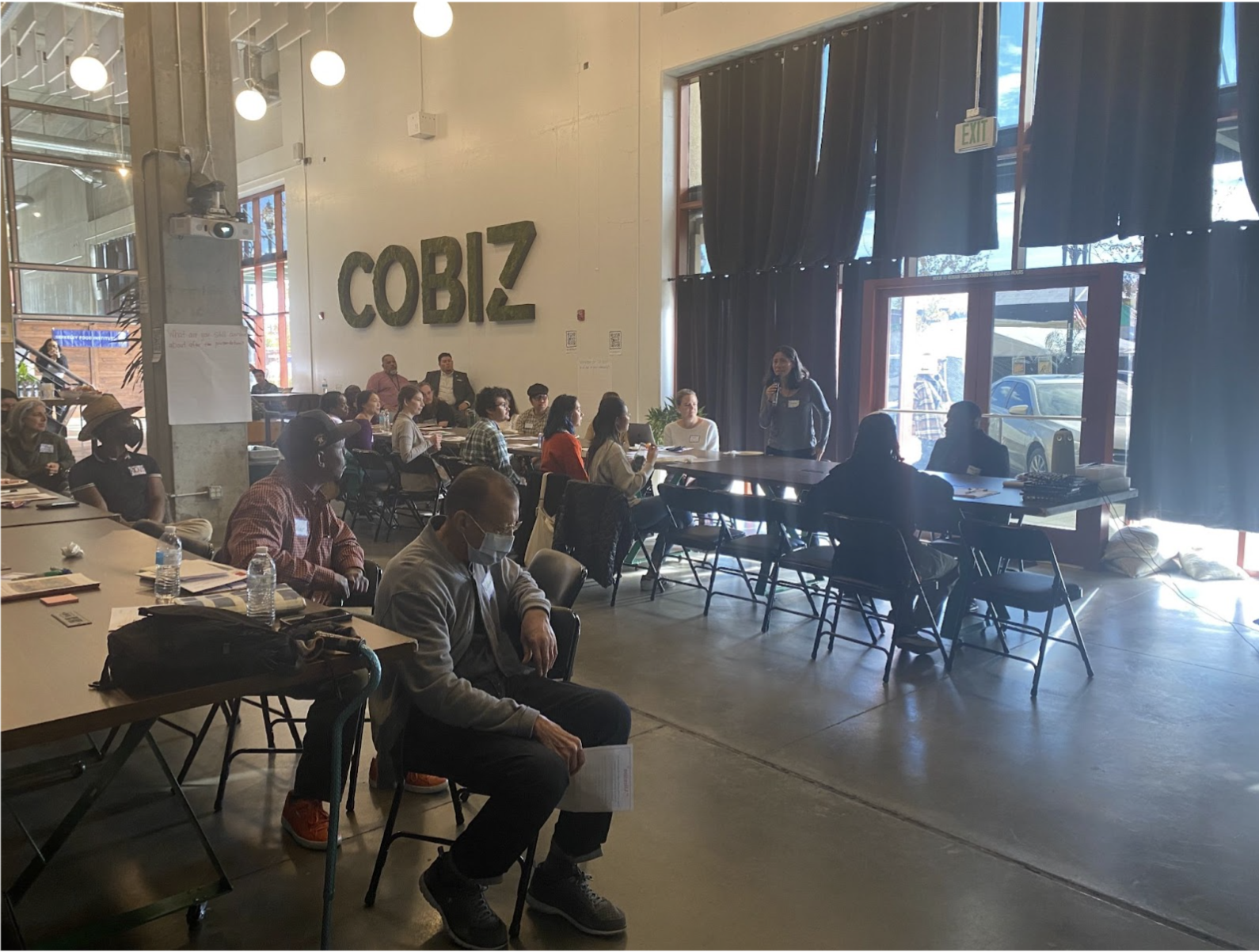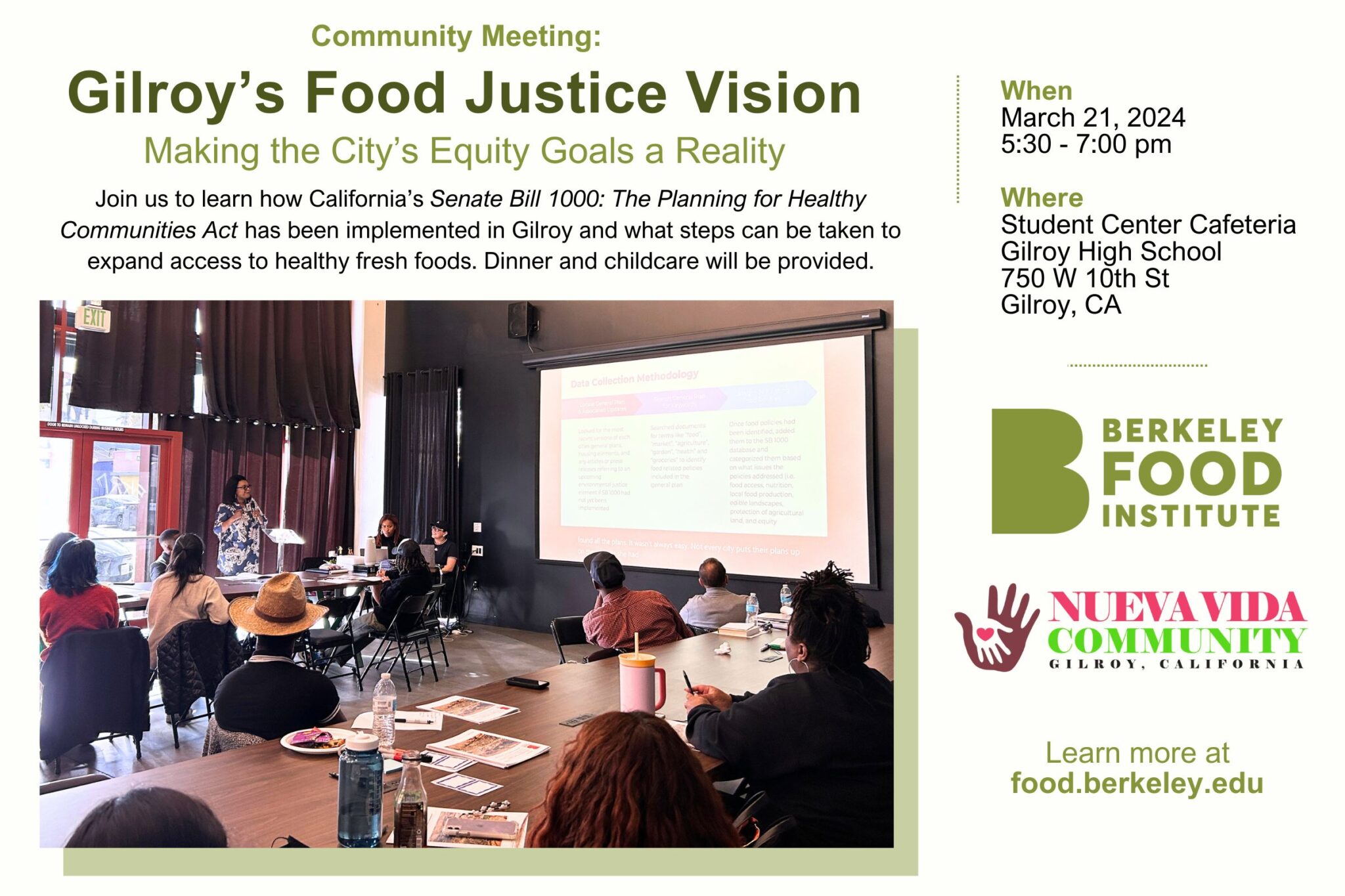From the Field
Our SB 1000 Research Roadshow
BFI faculty leadership has been evaluating California’s Senate Bill 1000. We’re sharing their research with the community members directly impacted by this law.

In May 2022, BFI faculty directors Susana Matias and Charisma Acey, along with Master of City Planning student Katherine Fallon, undertook a research project tracking the implementation of California’s Senate Bill 1000: The Planning for Healthy Communities Act, which aims to incorporate environmental justice into land use planning. Food access is an important component of environmental justice, so our researchers evaluated how cities and counties triggered by the law might advance food justice through updates to their General Plans. The researchers also wanted to see if and how planning departments attempted to engage with communities to center their needs when designing equitable food access interventions.
Last fall, BFI took these research findings on the road to share them back with the local communities, stakeholders, and city officials highlighted in the research. Many of these community members played a direct role in shaping their city’s environmental justice policies.
The first stop of the SB 1000 roadshow was Sacramento. On October 4, 2023 we took over a dozen UC Berkeley students on a day trip to the UC Center Sacramento (UCCS), which provides students across the UC system the opportunity to take classes in policymaking and work with state agencies to prepare the next generation of policy-driven leaders. UCCS is also a space for California elected officials and their staff to learn about research produced throughout the UC system. Students, staffers, and the general public were invited to watch Dr. Acey’s presentation titled “Planning for Food Justice: Advancing Equity and Food Justice in Land Use Planning through California’s SB 1000” to expand on the law and their research findings. Following the presentation, students met with local Black urban farmers, Nate Brown from Brown Sugar Farms and Keith and Richelle Hudson from Grocery Croppers — members of Ujamaa Farmer Collective. Students learned about some of the experiences and challenges these young Black farmers are facing in Yolo County.

UC Berkeley students and BFI staff pose with members of the Ujamaa Farmer Collective at the UC Center Sacramento. Photo by Austin Price, BFI Communications Coordinator
Reflecting on Dr. Acey’s presentation and the Black farmer roundtable discussion, one urban studies undergraduate student reflected, “I learned more about the extensive food desert crisis in California and that bills like SB 1000 are important steps in implementing a general plan that serves the community rather than prioritizing profit at all cost.” Our Sacramento visit was a motivating and impactful experience for our students to see how crucial community level input is for more equitable land use planning.
Richmond was the second stop on our roadshow. During the initial research, Richmond was selected as a case study because it was an early adopter of SB 1000, soon after the law went into effect in 2018. It also gives a glimpse into an urban setting that has historically dealt with many environmental justice issues. On November 14, 2023, the local nonprofit and co-working space, CoBiz Richmond, opened its doors for us to hold a community meeting with Richmond’s residents, local elected representatives, city staff, and community organizations to discuss SB 1000 and how Richmond designed and implemented its new Environmental Justice element. After Dr. Acey’s initial presentation, the second half of the meeting was opened up for attendees to reflect on what further steps they’d like the city to take to expand access to healthy fresh foods for all.
For many attendees, it was their first time hearing of SB 1000, which was also noted throughout interviews with Richmond and Gilroy community groups during the initial research. City planners had spent time working with select groups, but failed to circle back with groups to let them know the element was completed and available to disseminate. With no commitment of funding or resources to implement goals like expanding equitable food access, it’s easier for the public to remain in the dark about these kinds of opportunities for change.

Susana Matias, BFI Co-Associate Faculty Director, shares a few remarks to close out the Richmond meeting. Photo by Olivia Rounsaville, BFI Communications Assistant
Our next community meeting will take place in Gilroy on March 21, 2024 from 5-7:30 PM at Gilroy High School’s cafeteria, where we will gather to focus on how Gilroy city planners engaged with local residents, especially from Latinx communities as they make up almost 60 percent of Gilroy’s population. The researchers chose Gilroy as a case study because it was also an early adopter of the law but serves as an example of a rural city planning department that made a concerted effort to listen to their local communities. For this community meeting, we are partnering with the local organization Nueva Vida which was critical in Gilroy city planners’ outreach efforts to Latinx communities when they were designing their EJ element. Nueva Vida went door-to-door and distributed fliers to make sure they could help the city planners have the best turn out possible. We hope that cities and counties who have not implemented the law yet, are in the midst of the process, or are out of compliance with the law, can also view these cities as models for community engagement in the planning process and especially for reporting back finalized elements to keep their residents informed and engaged with their local governments.
Advancing food justice through land use planning and especially with community input still has a long way to go. Berkeley Food Institute remains motivated by the communities across California that continue to self-advocate and self-organize to push for legislation that enshrines equitable good food access and environmental justice. We hope to inspire current and future city planners to continue innovating, outreaching, and uplifting the communities they work for.
For inquiries from city staff and/or community-based organizations interested in collaborating with BFI on a community meeting in your city to discuss SB 1000, please reach out to foodinstitute@berkeley.edu.
